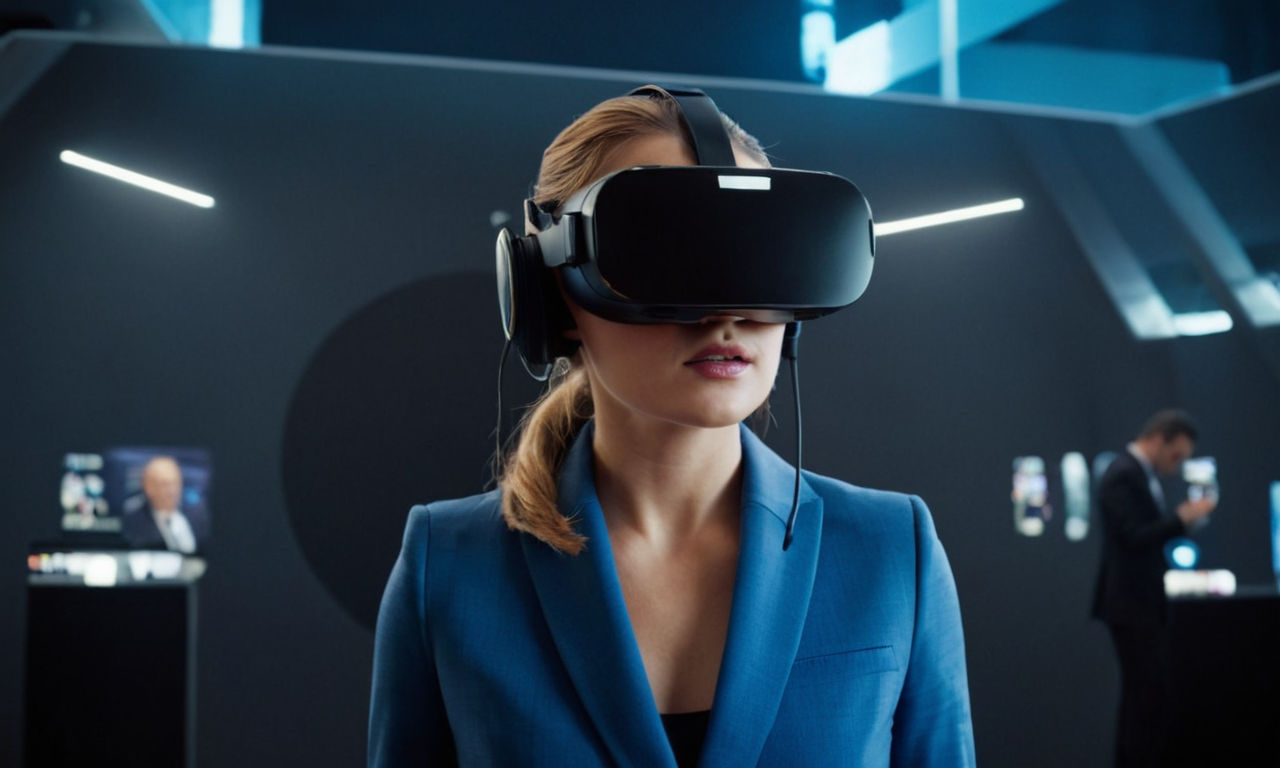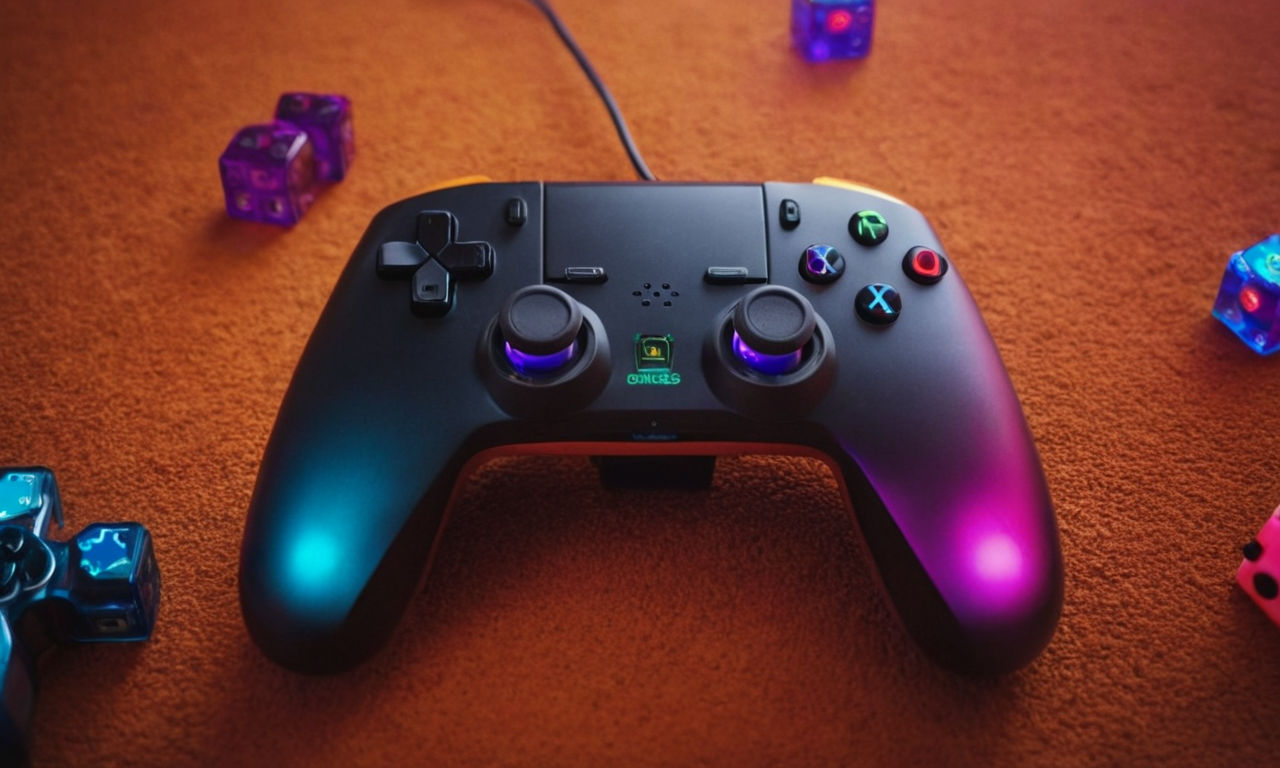Introduction
In recent years, the landscape of B2B marketing has seen a significant shift towards innovative and engaging strategies, with one particularly intriguing avenue being the integration of video games into marketing initiatives. This article delves into the realm of B2B marketing in the video game industry, exploring how companies are leveraging gaming tactics to drive business growth and success. By examining the benefits and strategies associated with this approach, businesses can gain insights into the potential advantages of incorporating gaming elements into their marketing efforts.
The rise of utilizing video games for B2B marketing purposes signifies a departure from traditional marketing techniques towards more interactive and immersive experiences. This shift has been fueled by the realization that B2B audiences are increasingly seeking unique and engaging content that goes beyond conventional advertising methods. By tapping into the world of gaming, companies can not only capture the attention of their target audience but also foster deeper connections and brand loyalty through interactive experiences.
Throughout this article, we will explore the main benefits of integrating gaming into B2B marketing strategies, including increased engagement, enhanced brand recall, and improved lead generation. Moreover, we will analyze the different types of B2B marketing games available and showcase how they can be strategically utilized to forge meaningful connections with business clients. By understanding the significance of B2B gaming strategies, businesses can unlock new opportunities for growth and differentiation in a competitive marketplace.
The Significance of B2B Gaming Strategies
In the realm of B2B marketing, companies are increasingly turning to gaming strategies as a powerful tool for capturing the attention and interest of their target audience. The adoption of gaming elements in marketing initiatives stems from the recognition that traditional methods alone may no longer suffice in engaging modern B2B buyers who are inundated with information and advertising messages.

One of the primary drivers behind the adoption of B2B gaming strategies is the unparalleled level of engagement that games offer. By immersing potential clients in interactive and entertaining gameplay, businesses can create a memorable and impactful experience that resonates with their audience. This heightened engagement can lead to increased brand awareness, improved customer retention, and ultimately, a competitive edge in the market.
Successful implementation of B2B gaming strategies can be observed in various companies that have harnessed the power of games to enhance their marketing efforts. These companies have creatively leveraged gaming mechanics, such as interactive simulations, gamified learning experiences, and virtual product demos, to deliver valuable content in an engaging format. By embracing innovation and creativity, these companies have been able to establish stronger connections with their B2B clients and drive measurable results in terms of lead generation and customer acquisition.
Understanding Video Game Marketing Benefits for B2B Sector
In the realm of B2B marketing in the video game industry, leveraging video games can significantly augment brand recall for companies. With interactive and engaging gameplay, businesses can create memorable experiences for their audience. By immersing clients in a virtual world that resonates with their brand values, companies increase the likelihood of being remembered when seeking relevant products or services.
When it comes to lead generation, gaming strategies can be a game-changer for B2B companies. By incorporating lead generation mechanisms within the games, such as gated content or contact information capture during gameplay, businesses can not only attract potential leads but also nurture them through the gaming experience. This innovative approach can result in higher quality leads with a genuine interest in the brand.
Case studies provide concrete evidence of the success of B2B video game marketing campaigns. For instance, a software company developing a game that simulates real-world business challenges for its target audience saw a significant increase in engagement and lead generation. These success stories demonstrate the effectiveness of incorporating gaming elements into B2B marketing strategies.

Types of Corporate Marketing Games for B2B
In the landscape of B2B marketing, various types of corporate marketing games cater specifically to the needs of businesses. Interactive games offer a personalized and engaging experience, allowing companies to showcase their products or services in a unique way. Simulations, on the other hand, provide a realistic environment where clients can test scenarios and make informed decisions, mirroring real-world business challenges.
Educational gaming holds immense potential as an effective tool for B2B marketing. Companies can use games to educate their clients about complex products or services in a fun and interactive manner. By gamifying the learning process, businesses not only impart knowledge but also create a memorable experience that reinforces brand awareness and expertise.
Examples of popular corporate marketing games abound, each with distinct outcomes. For instance, a cybersecurity firm developing a game that educates clients on the importance of data protection not only increased brand visibility but also positioned itself as a thought leader in the industry. These examples highlight the versatility and impact of corporate marketing games in the B2B sector.
Leveraging B2B Engagement Tactics through Games
B2B companies can harness the power of gaming to foster meaningful connections with their business clients. By incorporating gaming elements in client interactions, businesses create a unique and engaging experience that differentiates them from competitors. Whether through gamified loyalty programs or interactive demos, companies can strengthen relationships and build rapport with clients in a playful and innovative manner.

Strategies aimed at enhancing customer engagement and loyalty through gaming initiatives are essential for B2B companies. By consistently delivering valuable and entertaining gaming experiences, businesses can keep clients engaged and invested in their brand. This approach not only enhances customer retention but also cultivates a sense of loyalty and advocacy among clients, driving long-term business growth.
The concept of gamification in B2B marketing and customer relationship management is pivotal. By integrating game mechanics, such as rewards, challenges, and leaderboards, into their interactions with clients, companies can incentivize desired behaviors and create a sense of achievement. This gamified approach not only increases engagement but also fosters a stronger bond between businesses and their clients, leading to sustained relationships and mutual benefits.
Implementing B2B Marketing Games: Strategies and Best Practices
In today's competitive business landscape, B2B companies are constantly seeking innovative ways to engage their audience and stay ahead of the curve. Integrating gaming into B2B marketing strategies has emerged as a powerful tool to capture the attention of business clients and foster lasting relationships. Here is a step-by-step guide on how B2B companies can effectively leverage gaming in their marketing endeavors:
Understanding Target Audience: Before diving into the world of gaming, it is crucial for B2B marketers to have a deep understanding of their target audience. Analyzing the preferences, behavior, and interests of business clients will help in creating gaming experiences that resonate with their needs.
Setting Clear Objectives: Define clear goals and objectives for incorporating gaming into your B2B marketing strategy. Whether it's to increase brand awareness, generate leads, or drive customer engagement, having a well-defined purpose will steer the direction of your gaming initiatives.
Choosing the Right Game Format: Selecting the appropriate game format is essential in capturing the attention of your B2B audience. Whether it's interactive web-based games, mobile gaming apps, or virtual reality experiences, align the game format with the preferences of your target clients.
Integrating Brand Messaging: Seamlessly integrate your brand messaging and values into the gaming experience. Ensure that the game reflects the essence of your B2B company and communicates your unique selling propositions effectively.
Measuring Success: Implement robust analytics tools to measure the effectiveness of your B2B gaming strategies. Monitor key performance indicators such as engagement levels, conversion rates, and customer feedback to optimize the gaming experience for better results.
Optimizing for Results: Continuously optimize your gaming strategies based on the insights gathered from analytics. A/B testing different gameplay elements, refining user experience, and incorporating user feedback are vital steps in enhancing the impact of gaming on your B2B marketing efforts.
Conclusion
In conclusion, the adoption of gaming in B2B marketing strategies offers a multitude of benefits for companies looking to engage their business clientele in a dynamic and interactive manner. By incorporating gaming elements into their marketing initiatives, B2B companies can significantly enhance brand recall, increase customer engagement, and drive lead generation effectively.
As B2B marketing continues to evolve, embracing the innovative potential of gaming can set companies apart in a crowded marketplace. The importance of creativity and innovation in B2B marketing approaches cannot be overstated, and leveraging gaming is a testament to staying ahead of the curve.
In light of these insights, it is essential for B2B companies to explore the potential of gaming in their marketing efforts and embrace the transformative power of interactive experiences to connect with their business clients on a deeper level. It's time for B2B marketers to unlock the possibilities that gaming offers and revolutionize their approach towards engaging the modern business audience.



